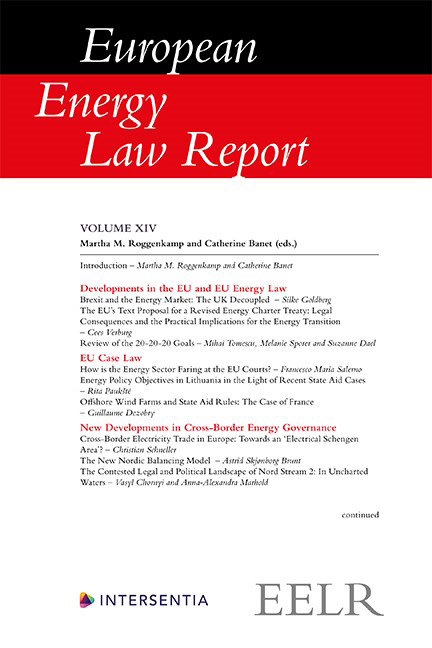Chapter III - Review of the EU 20-20-20 Goals
Published online by Cambridge University Press: 26 May 2022
Summary
INTRODUCTION
Over the last three decades, the scientific, technological and socio-economic knowledge on climate change has grown substantially and, with it, the urgency to act to prevent dangerous interference with the climate system. In 1990, the Intergovernmental Panel on Climate Change (IPCC) published its first Assessment Report on the state of climate change, a milestone publication not only in climate science, but also in climate policy, as it served as a basis for the United Nations Convention on Climate Change (UNFCCC). Since then, four further Assessment Reports have followed and the next is currently being prepared. The release of the Synthesis Report of the 6th assessment cycle is scheduled for the first half of 2022. In October 2018, the IPCC reiterated the urgency of the matter in its Special Report on Global Warming of 1.5°C. The report indicates that if global warming were to continue at its current rate, a temperature increase of 1.5°C compared to pre-industrial levels would be reached between 2030 and 2050. Without systemic change, modern economies that build on the premise of growing resource and energy use would steadily increase global greenhouse gas (GHG) emissions.
The energy system is the largest source of GHG emissions. Within the European Union (EU), roughly three-quarters of all GHG emissions originate from burning fossil fuels to produce energy. In its broadest sense, the energy system comprises energy infrastructures and technologies, socioeconomic factors and political frameworks that interact continuously to meet societal needs. Natural resources, people, infrastructure and institutions are among the key inputs, while activities range from resource extraction to conversion, storage, production, transmission and distribution, and finally to consumption in end-use sectors. The activities lead to both socio-economic benefits and environmental impacts.
To prevent the atmosphere from warming by more than 1.5°C, rapid, far-reaching and unprecedented changes in all aspects of society are necessary, starting with the energy system. In this regard, upscaling current trends in efficiency improvements to moderate energy demand as well as measures to decarbonise the production of electricity, heating and cooling, and transport will swiftly and consistently support this transition.
- Type
- Chapter
- Information
- European Energy Law Report , pp. 55 - 76Publisher: IntersentiaPrint publication year: 2021



